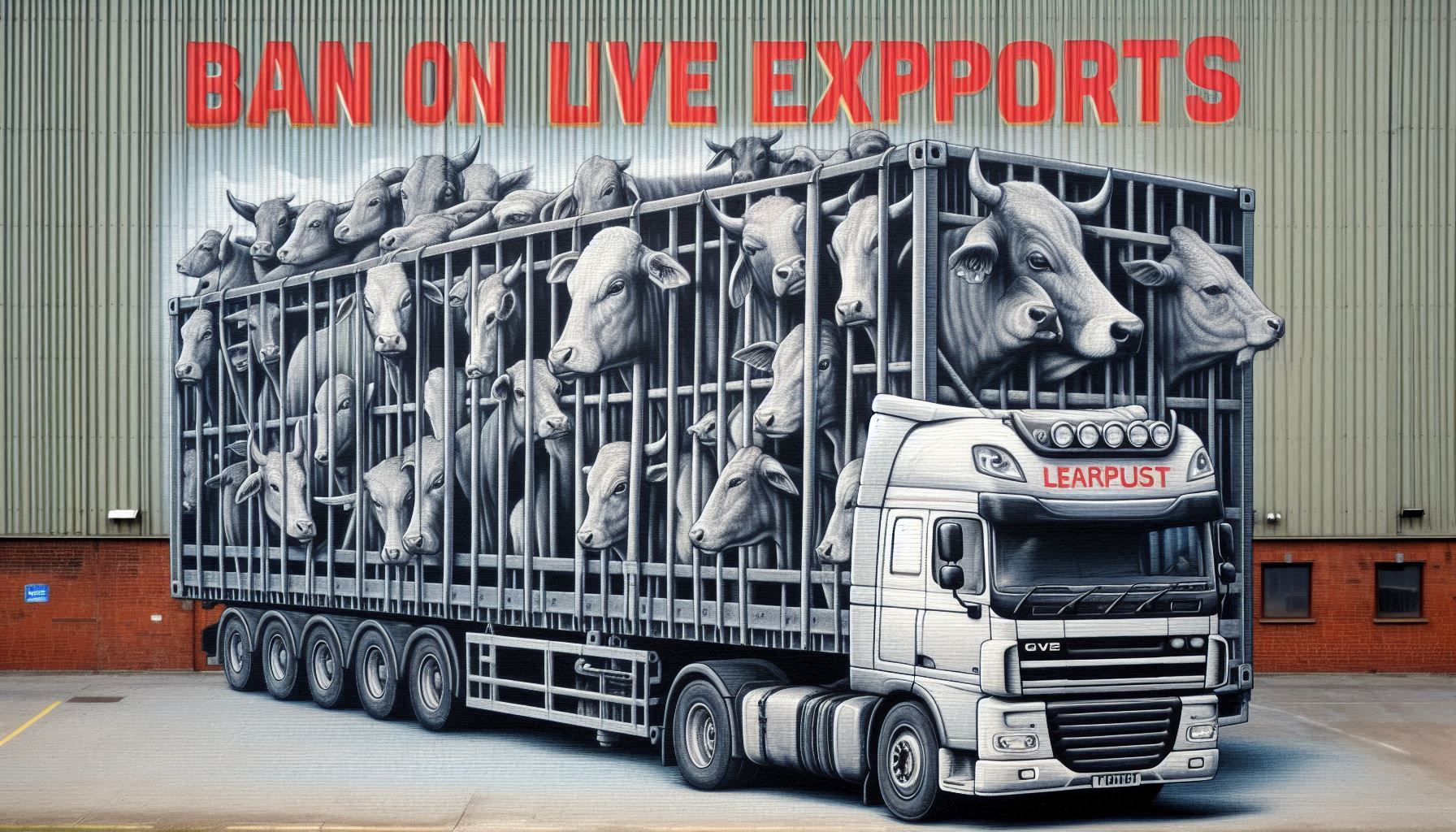In 2024, the United Kingdom officially banned the export of live animals for slaughter and fattening. The law, part of the Animal Welfare (Livestock Exports) Act, came after years of campaigning by animal rights groups. With this new regulation in place, attention is turning to the European Union. Could this move influence EU policy, and what impact does it have on trade, enforcement, and animal welfare across Europe?
This article looks at the UK ban and what it means for other European countries.
What the UK Ban Covers
The UK ban applies to cattle, sheep, goats, and pigs exported for slaughter or fattening. It does not cover breeding animals or horses. The goal is to prevent long journeys that often lead to stress, injury, and suffering. The law also sends a strong message: that animal welfare during transport must be taken seriously.
For years, animals were shipped from the UK to mainland Europe. Some ended up traveling thousands of kilometres to distant destinations, often in poor conditions. The ban now stops this practice entirely.
Why the Ban Matters
A Landmark Decision
The UK is the first European country to ban live exports for slaughter. This makes it a key moment in the wider debate on animal welfare during transport.
Setting a Precedent
Although the UK is no longer part of the EU, its decision could influence lawmakers in the EU who are working on transport reform. Public support for ending live exports is strong across Europe, and the UK ban increases pressure on other governments to follow.
How the EU Is Responding
The European Commission has proposed reforms to limit journey times and improve enforcement. In 2025, new EU rules took effect:
- Mammal transport capped at 8 hours.
- Poultry transport limited to 4 hours.
- Stricter rules on vehicle quality and temperature control.
- Extra checks at border crossings and ports.
However, the EU has stopped short of a full ban. Live exports outside the EU still happen. Countries like Romania, Spain, and Ireland continue to export live animals to the Middle East and North Africa.
Impacts on Trade and Transport
The UK ban has changed some trade patterns. Without UK ports handling live exports, some routes have shifted. Irish exporters now rely more on continental ports. Some producers worry about lost markets, while others see a chance to move toward local meat processing.
There are also fears that UK producers might face a competitive disadvantage. But supporters of the ban argue that ethical standards must come first. They point to consumer demand for higher welfare and traceable food as a sign that the industry can adapt.
What Animal Welfare Groups Say
Campaigners across Europe have welcomed the UK’s decision. They argue that it shows governments can act, even in the face of industry pressure. Many are calling on the EU to match or exceed the UK’s standards.
Groups like Compassion in World Farming and Four Paws continue to push for:
- A full ban on long-distance live transport.
- Greater transparency and monitoring.
- Stronger penalties for violations.
The UK ban has also added momentum to citizen-led petitions and campaigns in EU countries.
Challenges to EU Reform
Not all EU member states support a ban. Exporting countries argue that live animal trade is essential for their economies. Others say that improving transport conditions is better than banning the practice.
This division makes it hard for the EU to pass stronger rules. As a result, enforcement remains uneven. Some countries apply the rules strictly; others do not.
What Could Happen Next?
The UK ban adds weight to ongoing reform efforts. It shows that change is possible. Over time, more EU countries may adopt national-level restrictions, putting further pressure on the EU to act.
There is also a growing push to invest in alternatives:
- Local slaughter and meat transport.
- Mobile abattoirs near farms.
- Genetic exports for breeding instead of live animals.
These methods can reduce animal suffering and help meet both ethical and market demands.
The UK’s decision to ban live exports for slaughter is a turning point in animal welfare. It sets a new standard and challenges the EU to take stronger action. While the 2025 EU reforms are a step forward, they fall short of the UK’s approach.
If Europe is serious about protecting animal welfare, more countries will need to follow the UK’s lead. Until then, millions of animals each year will continue to face long and stressful journeys.
